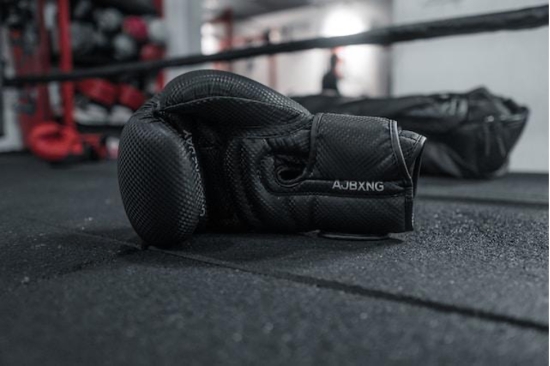10 Must-Have Boxing Gear for College Fighters: Essential Equipment for Success
Boxing is a sport of grit, discipline, and skill, and for college fighters aiming for success, the right gear is as crucial as their training regime. Here’s a rundown of the top 10 must-have pieces of boxing equipment for any college boxer looking to make a mark in the ring.
1. Quality Boxing Gloves
Your boxing gloves are your primary tool in the ring, much like how the best essay writing service is crucial for crafting quality content. Investing in a pair that provides adequate protection and comfort is essential. Look for gloves with sufficient padding to protect your knuckles and wrists, and make sure they have a snug, comfortable fit. The material of the gloves should be durable and breathable to ensure longevity and comfort during long training sessions. Additionally, consider gloves with a secure wrist closure to provide extra support and adjustability. This attention to detail in choosing boxing gloves mirrors the care and precision needed in selecting the best essay writing service for academic excellence. Choose reliable companies that can provide quality services on time.
2. Reliable Hand Wraps
Hand wraps are crucial for wrist support and knuckle protection. They compress the bones and tissues in your hands while absorbing sweat and shock. A good pair of hand wraps can make a significant difference in preventing hand and wrist injuries. Ensure they're made of a durable, elastic material for a comfortable fit that doesn’t loosen during intense training sessions. Regularly replacing hand wraps is important as they wear down with use, ensuring continuous protection and support.
3. Protective Headgear
Headgear isn't just for professional boxers; it's vital for college fighters, too. It cushions your head from heavy blows, reducing the risk of concussions and other head injuries. Look for headgear that offers ample padding, especially around the cheeks and forehead, without obstructing your vision. The headgear should also have adjustable straps for a secure fit and adequate ventilation to keep you cool during bouts and sparring sessions.
4. Mouthguard
A mouthguard is essential for protecting your teeth and jaw. A high-quality mouthguard will help absorb and distribute the force of a blow, safeguarding against broken teeth and concussions. Also, listen to boxing podcasts to learn some knowledge from experienced athletes. Custom-fitted mouthguards provide the best protection and comfort, although they are more expensive than off-the-shelf options. It's also crucial to clean and maintain your mouthguard regularly to ensure hygiene and durability.
5. Boxing Shoes
Boxing shoes are designed to provide the balance and grip you need in the ring. They should be lightweight yet supportive, offering enough ankle stability to prevent injuries. Good boxing shoes enhance your footwork, a critical aspect of boxing efficiency. The soles should be non-slip to provide traction in the ring, and the material should be breathable to keep your feet cool during fights and training. Remember, a comfortable fit is key to maintaining agility and speed.
6. Punching Bag
A punching bag is necessary for honing your techniques, power, and combinations. A heavy bag is ideal for developing strength for college fighters, while a speed bag helps improve hand-eye coordination and speed. Ensure the bag's weight and material suit your training requirements. Regular training with a punching bag also boosts your stamina and helps simulate real fight scenarios, enhancing your reflexes and tactical thinking.
7. Boxing Pads
Boxing pads, or focus mitts, are essential for practicing punches and combinations with a partner. They help improve accuracy, speed, and timing. Look for durable pads that offer ample shock absorption to protect both the holder and the puncher. Additionally, boxing pads are a great way to develop a rhythm in your punches and foster a better understanding of timing and distance in combat.
8. Skipping Rope
A skipping rope is a simple yet effective tool for improving cardiovascular fitness, footwork, and agility. It's a staple in a boxer's training regimen. Opt for a lightweight, adjustable rope that suits your height and skill level. This exercise enhances your endurance and coordination, which are crucial for outlasting opponents in the ring.
9. Training Clothes
Comfortable training clothes are crucial for any boxer. Your gear should allow for full range of motion and breathability. Look for moisture-wicking fabrics that keep you dry and comfortable during intense workouts. Avoid overly baggy clothes as they can hinder movement or get caught during training. The right training attire can boost your confidence and mental preparedness, putting you in the right mindset for training and competition.
10. Groin Protector
Last but not least, a groin protector is essential for both male and female boxers. It protects sensitive areas from accidental low blows, which are not uncommon in the sport. A well-fitted groin protector should offer maximum protection without restricting movement. Knowing you're well-protected against unexpected hits is crucial for maintaining focus during sparring or a match.
Final Thoughts
The right boxing gear is a game-changer for college fighters. It enhances performance and plays a vital role in injury prevention. Quality equipment means investing in your safety and success as a boxer. Remember, while gear is crucial, your dedication, training, and spirit truly make you a champion in the ring.
Bio
Sam Stahl is an experienced sports journalist and a former amateur boxer known for his insightful and engaging articles on boxing and fitness. His sports expertise and passion for writing enable him to offer practical advice and in-depth analysis on boxing techniques, gear, and training methods. Sam's work is appreciated for its clear, direct style and usefulness to novice and experienced boxers looking to enhance their skills and understanding of the sport.
The History of Slot Games
Slot games are an integral part of the global gaming industry, captivating millions with their thrilling combinations of luck and strategy. The history of slot games is fascinating and spans over a century, tracing its roots from mechanical machines to the dazzling digital realm of today. This article looks at how slot games have developed, exploring the milestones and innovations that have shaped this beloved form of entertainment.
The Birth of the Slot Machine
The genesis of slot games can be traced back to the late 19th century. In 1895, Charles Fey, a San Francisco-based mechanic, designed the iconic Liberty Bell slot machine. This groundbreaking invention featured three reels adorned with symbols like horseshoes, stars, and playing cards, along with a cracked liberty bell that gave the machine its name. The Liberty Bell is regarded as the first true slot machine, laying the foundation for the industry.
The Expansion of Slot Machines
The popularity of the Liberty Bell spawned a wave of imitations and innovations, leading to the use of slot machines in bars, saloons, and various entertainment establishments. In the early 20th century, the demand for these machines surged, prompting manufacturers to introduce new themes and designs to distinguish their products. The introduction of fruit symbols and the famous BAR symbol became synonymous with slot machines during this era.
Electromechanical Era
The mid-20th century witnessed a significant leap in technology with the introduction of electromechanical machines. These devices combined electrical components with mechanical elements, introducing features like lights, sounds, and more intricate reel mechanisms. The Bally Manufacturing Corporation, a pioneer in this field, unveiled the first fully electromechanical slot machine named Money Honey in 1963, marking a transformative moment in the industry. This innovation paved the way for larger jackpots and more dynamic gameplay.
Video Slots Revolution
The 1970s ushered in a new era of slot gaming with video slots. These machines replaced physical reels with virtual reels displayed on a screen, providing more flexibility in terms of design and features. The first video slot, Fortune Coin, was developed by Walt Fraley in 1975. However, it took a few years for video slots to gain widespread acceptance due to concerns about fairness and security.
The Rise of Online Slots
The internet boom of the 1990s brought about a paradigm shift in the world of slot gaming. Online casinos emerged, giving players the convenience of enjoying their favorite slot games in their homes. The first online slot debuted in 1994, and this marked the beginning of a digital revolution in the industry. The vast array of themes, features, and progressive jackpots contributed to the meteoric rise of online slots. You can find some of the best online slot games to play for free at sites like SlotsOnlineCanada.com.
Mobile Gaming and Modern Innovations
In the 21st century, the proliferation of smartphones and mobile technology has further transformed the landscape of slot gaming. Mobile slots let players enjoy their favorite games on the go, contributing to the widespread accessibility of slot entertainment. Increasingly, the integration of cutting-edge technologies like virtual reality (VR) and augmented reality (AR) has added a new dimension to the gaming experience, providing a level of immersion never before imagined.
The history of slot games is a testament to the industry's constant evolution and innovation. From the early beginnings of the Liberty Bell to the immersive digital experiences of today, slot games have adapted to changing technologies and player preferences.
Russell Wilson's Future: Potential Scenarios for 2024
As the 2023 NFL season wraps up, attention in Denver turns to the future of Russell Wilson, the nine-time Pro Bowl quarterback. With the Denver Broncos' recent decision to bench Wilson for their final games of the season, rumors are swirling around the league about whether he is going to leave the franchise. Following a significant trade that brought Wilson to Denver only two years ago, the looming uncertainty paints a complex picture of his future. While Wilson indicated this week he is open to returning to Denver, the chances are higher that the quarterback will be in a different uniform next season.
This article explores potential scenarios for Wilson in 2024, considering teams like the New England Patriots, the Las Vegas Raiders, and others as potential landing spots.
Las Vegas Raiders
The Raiders present an intriguing option for Wilson. Financially, they must navigate a delicate situation. Their need to move on from Jimmy Garoppolo, an expensive backup quarterback, implies a substantial dead money consequence. Equally, Wilson's high salary could be a deterrent. However, if Wilson becomes a free agent, this dynamic might change.
Wilson has proven to be a reliable quarterback throughout this season, ranking in the top half of the league in completion percentage, passing yards, and touchdowns. Although not quite at his Pro Bowl best, this performance level still marks him as a starting-caliber player. If the Raiders cannot draft their desired quarterback, and if Wilson is open to a reduced salary, he could compete with Aidan O’Connell for the starting position.
However, the Raiders also need to invest strongly in the future. They have long relied on experienced, aging quarterbacks who need to invest strongly, and it is time for them to reset their timeline with a younger player. Drafting a quarterback seems the best approach for the Raiders, and it may not be in their best interest to acquire another veteran quarterback on a downward trajectory.
It will be fascinating to see how the future FanDuel TNF betting odds might change with any potential move of Wilson to the Raiders.
Minnesota Vikings
The Minnesota Vikings also present a viable destination for Russell Wilson. With Kirk Cousins' contract expiring at the end of this season and his future with the team uncertain, the Vikings may be in the market for a new quarterback. If Cousins chooses to sign elsewhere, the Vikings might consider drafting a high-end talent and signing a bridge quarterback to allow the draft pick time to develop. Wilson could be a fitting choice in this scenario, given his experience and proven record.
However, Wilson's potential fit with the Vikings is not without obstacles. If Cousins decides to stay, this discussion becomes moot, as the team would likely be unable to entertain the idea of adding Wilson. Also, the financial implications of signing Wilson could be a deterrent. If Wilson demands a contract in line with Garoppolo, who signed a three-year, $72.5 million contract with the Raiders in March, the Vikings may be hesitant. Paying such a high wage for a short-term solution may not align with their plans, especially if they consider drafting a quarterback.
Another factor to consider is Vikings' coach Kevin O'Connell's preference for a quarterback with a strong short and mid-range passing game, skills currently under scrutiny in Wilson's game. Wilson's future with the Vikings is far from certain, and the upcoming off-season will reveal whether a move to Minnesota is in the cards.
New England Patriots
The Patriots emerge as another potential suitor for Wilson. Assuming the team is ready to move on from Mac Jones, the Patriots need a quarterback and might see Wilson as a valuable asset. Despite his age, Wilson's experience and proven track record could appeal to Bill Belichick if he remains in a decision-making role. Before their recent matchup, which the Patriots won, Belichick had admired Wilson, indicating a potential interest.
However, the Patriots might also be looking at the long game. Given they pick No. 3 in the upcoming draft, it could be financially sensible for them to draft a quarterback, thereby securing talent on a rookie contract. Furthermore, at 35, Wilson might not fit the Patriots' desire for a long-term quarterback, particularly if Belichick is not at the helm to make the decisions. Therefore, while Wilson could be a viable short-term solution, the Patriots' final decision will hinge on their broader strategy for the upcoming season.
Unlocking Athletic Performance: The Role of Testosterone Boosters in Sports Excellence
In the pursuit of peak athletic performance, every edge counts. Testosterone boosters, often discussed and debated in sports circles, are among the many methods athletes use to gain a competitive advantage. This comprehensive exploration into testosterone boosters aims to demystify their role, benefits, and risks in the context of athletic excellence.
Understanding Testosterone in Athletic Performance
The Biological Role of Testosterone
Testosterone is a steroid hormone predominantly produced in the testes and ovaries. It's instrumental in developing male secondary sexual characteristics and plays a vital role in overall health and well-being. In athletics, testosterone's anabolic effects—such as promoting muscle mass and strength—are particularly valued.
It also influences fat distribution, red blood cell production, and maintains bone density, all critical factors in athletic performance. A balanced level of testosterone is crucial for optimal health and performance, making its management a key focus for many athletes.
Testosterone Levels and Athletic Variability
The natural variance in testosterone levels among athletes raises important questions about fairness and performance advantages in competitive sports. For instance, athletes with naturally higher testosterone levels may experience enhanced muscle growth and improved recovery times, giving them an edge in strength and endurance-based sports.
This variance has also sparked debates in gender categories in sports, especially concerning athletes with conditions like hyperandrogenism. Understanding these natural variations is essential for developing fair and effective sports policies and for athletes seeking to optimize their performance within these frameworks.
Testosterone Boosters in Sports
Types of Testosterone Boosters
The market for testosterone boosters is diverse, ranging from natural supplements to medically prescribed hormone replacement therapies. Among natural supplements, the best Testofen supplement is often sought after for its reputed efficacy in boosting testosterone levels naturally. Testofen, derived from fenugreek, is a popular ingredient known for its potential to increase testosterone levels.
Athletes often turn to these boosters to overcome deficiencies or to gain a competitive edge. Other natural supplements, which typically include plant extracts and essential nutrients, are often preferred for their perceived safety profile. However, their efficacy varies, and the quality of these supplements can be inconsistent. In contrast, medically prescribed testosterone, such as injections or gels, are used in more controlled environments but carry a higher risk of side effects and are strictly regulated in professional sports.
The Legality and Ethics of Testosterone Boosting
The ethical considerations surrounding testosterone boosters in sports are complex. They touch upon issues of fairness, health risks, and the integrity of sports.
The World Anti-Doping Agency (WADA) and other regulatory bodies have set strict guidelines on the use of performance-enhancing substances, including synthetic testosterone. Athletes using these substances risk sanctions, including bans from competition. This legal and ethical landscape requires athletes to be well-informed and cautious, ensuring that their pursuit of performance enhancement aligns with the values of fair play and health preservation.
Evaluating the Efficacy of Testosterone Boosters
Scientific Evidence and Athlete Testimonials
While anecdotal evidence from athletes suggests that testosterone boosters can lead to noticeable improvements in strength and stamina, the scientific community remains divided. Research studies often show conflicting results, with some indicating potential benefits and others finding minimal or no improvement in performance.
These discrepancies can be attributed to variations in study designs, differences in the quality and type of testosterone boosters used, and the individual characteristics of study participants. As such, athletes considering testosterone boosters must critically evaluate the available evidence and consider their unique physiological makeup.
Risks and Side Effects
Beyond the potential performance benefits, the risks associated with testosterone boosters, particularly synthetic ones, are significant.
Hormonal imbalances caused by exogenous testosterone can lead to long-term health issues, including infertility and increased risk of cardiovascular diseases. Athletes may also experience acute side effects like skin conditions, mood disturbances, and changes in libido. The psychological impacts, such as increased aggression, can affect an athlete's mental well-being and interpersonal relationships. These risks underscore the importance of careful consideration and medical supervision when using testosterone boosters.
Integrating Testosterone Boosters into Training Regimes
Best Practices for Athletes
For athletes considering testosterone boosters, a holistic approach is vital. This includes thorough medical evaluations to understand individual needs and potential risks.
Athletes should also stay informed about the changing landscape of sports regulations regarding supplement use. Additionally, maintaining a balanced diet and a well-structured training program is crucial. Supplements should never replace the fundamentals of good nutrition, adequate rest, and appropriate training. Athletes should also be aware of the psychological impacts of relying on supplements, and striving to maintain a healthy balance between physical and mental health.
Balancing Boosters with Holistic Training Approaches
The integration of testosterone boosters into an athlete's regimen should be approached with a view of complementing, not replacing, traditional training and recovery methods.
Proper nutrition, hydration, sleep, and mental health are all foundational elements that support an athlete's performance. Testosterone boosters might offer additional benefits, but they cannot compensate for deficiencies in these fundamental areas. Additionally, athletes must remain vigilant about the sources of their supplements, opting for reputable brands and avoiding substances with unknown or potentially harmful ingredients.
Conclusion
The use of testosterone boosters in sports is a multifaceted issue, encompassing physiological, ethical, and regulatory dimensions. While they can potentially enhance athletic performance, the decision to use them must be informed, cautious, and within the bounds of sportsmanship and health.
Athletes, coaches, and sports bodies must continue to navigate this complex landscape, prioritizing the health and well-being of athletes while upholding the integrity and fairness of competitive sports. In the quest for excellence, the role of testosterone boosters is significant but should be balanced with a comprehensive understanding of their impacts and limitations.
The 7 Best Games for Beginners: A Casino Guide for New Players
The variety of games can be overwhelming for those new to the casino scene. Selecting games that are enjoyable yet straightforward is key for beginners. This article introduces the 7 best casino games for beginners, offering a blend of simplicity, excitement, and learning opportunities.
1. Slot Machines
Slot machines are the quintessential casino game for beginners. They are the perfect starting point with no skill required and simple rules. Players simply insert their bets, press a button, or pull a lever, and wait to see if they’ve won. Slot machines come in various themes and often have different pay lines and bonus rounds, making them easy and entertaining. They are ideal for understanding the concept of pay lines and getting accustomed to the casino environment.
When choosing a casino, consider several factors, including available payment options. Bestcasinoplay.com may be more convenient for you than others and also more profitable. To choose a casino site that matches your criteria, look through the available payment options on their website as well as customer reviews.
2. Roulette
Roulette is another beginner-friendly game famed for its iconic spinning wheel. Players bet on where they think the ball will land – either on a number, a group of numbers, a color, or whether the number will be odd or even. The simplicity of betting options in roulette makes it an easy game for beginners to grasp while still offering the thrill of watching the wheel spin. It introduces new players to concepts like odds and betting strategies in a fun and engaging way.
3. Blackjack
Blackjack is a great game for beginners due to its simple objective – get as close to 21 as possible without going over, and beat the dealer's hand. It’s a game that combines luck and a bit of strategy, ideal for those who want to start exploring card games. Blackjack also offers one of the best odds in the casino for players, making it not only easy to learn but also potentially rewarding.
4. Baccarat
Baccarat, often perceived as a high-roller game, is surprisingly suitable for beginners. The game involves betting on one of two hands – the player or the banker – closest to nine. Baccarat requires no strategic decisions after the bet is placed, making it a simple yet sophisticated game. It’s a great introduction to card games without the complexity of poker.
5. Craps
Craps can seem intimidating with its bustling crowd and the multitude of betting options, but it’s a great game for beginners. The basic premise is simple – players bet on the outcome of dice rolls. Starting with simple bets like the Pass Line bet can ease beginners into the game. Craps is a social game, often with a lively atmosphere, providing a fun and interactive casino experience.
6. Video Poker
Video Poker is an excellent choice for beginners, especially those who prefer playing alone without the pressure of a table. The game combines elements of poker and slots, offering a simple way to learn basic poker hands. With a low house edge and straightforward gameplay, video poker is a great introductory game for new casino-goers, giving them a chance to practice strategy without the complexity of traditional poker.
7. Pai Gow Poker
Pai Gow Poker, a variation of poker with an Eastern twist, is a suitable game for beginners. The game is played with a standard deck of cards plus a joker. Players are dealt seven cards and must make two poker hands – a five-card hand and a two-card hand. The relaxed pace and simple objective of beating the dealer’s hands make Pai Gow Poker a stress-free introduction to poker games.
Conclusion
In conclusion, the casino world offers numerous games perfect for beginners. Slot Machines, Roulette, Blackjack, Baccarat, Craps, Video Poker, and Pai Gow Poker stand out as the best starting points for new players. Each game offers a unique blend of simplicity, excitement, and the opportunity to learn the ropes of casino gaming. By starting with these games, beginners can enjoy the casino experience while gradually building their understanding and confidence. Responsible gambling is key, so set a budget, understand the rules, and, most importantly, have fun!
Author: Sam Stahl
Sam Stahl is a dynamic article writer passionate about the casino and gaming industry. His articles blend his love for the thrill of the game with insightful analysis, offering readers a unique perspective on casino trends and strategies. Sam's engaging and informative style makes him a go-to source for those interested in the exciting world of casinos.
Healthy Diet on Campus
Being a student-athlete is a balancing act, juggling academics, sports, and social life. Amidst this busy schedule, it's crucial to maintain a healthy diet, as it directly impacts your performance both in the classroom and on the field. Here are seven practical tips to help you stay on track with your nutrition while navigating campus life.
1. Start with a Strong Breakfast
Breakfast is the fuel that kick-starts your day. As a student-athlete, skipping breakfast is like driving a car without gas. A nutritious breakfast provides energy for early morning practices and keeps you focused during classes. For those times when academic demands are high, TopEssayWriting.org services can be a valuable resource for academic help, allowing you to focus on maintaining a balanced diet. Opt for oatmeal with fruits, a smoothie packed with greens and protein, or whole-grain toast with avocado and eggs. These choices are healthy but also quick and easy for those on-the-go mornings.
2. Hydration is Key
Hydration is often overlooked, but it’s as important as food intake. Dehydration can severely impact your athletic performance and cognitive abilities. Carrying a reusable water bottle is a simple way to ensure you drink enough water throughout the day. Aim for at least 8-10 glasses daily and more if you have intense training sessions. Remember, if you’re feeling thirsty, you’re already dehydrated.
3. Smart Snacking
Between classes, training, and studying, it's easy to fall into the trap of vending machine snacks or fast food, a challenge even the best essayists might relate to in their campus days. However, these are often high in sugar and low in nutrients. Plan and pack healthy snacks like nuts, fruit, yogurt, or whole-grain crackers. These can curb hunger, provide energy, and are much better choices than sugary or processed options.
4. Balance Your Plate
When it comes to meals, think about balancing your plate. A balanced meal should include a source of protein (like chicken, fish, or beans), a portion of carbohydrates (like rice, pasta, or bread), and plenty of fruits and vegetables. This balance ensures you’re getting a mix of essential nutrients to fuel your academic and athletic pursuits.
5. Don’t Skip Meals
With a packed schedule, it’s tempting to skip meals. However, missing meals can lead to decreased energy levels and poor performance. Even on your busiest days, make it a point to have at least three meals. If you're short on time, campus dining halls often offer healthy grab-and-go options that can save the day.
6. Treat Yourself Moderately
It’s okay to indulge in your favorite treats now and then. Completely cutting out your favorite foods can lead to cravings and overeating. The key is moderation. Enjoying a slice of pizza or a piece of cake occasionally won’t derail your diet. It's all about finding a healthy balance that includes room for occasional treats.
7. Listen to Your Body
Lastly, listen to your body. It knows what it needs. If you’re feeling sluggish, maybe you need more carbohydrates. Sore muscles? Perhaps more protein. Your body will often signal what it needs through cravings or physical symptoms. Paying attention to these cues and adjusting your diet can greatly affect your overall health and athletic performance.
Conclusion
Maintaining a healthy diet as a student-athlete isn't just about eating the right things; it’s about making smart, practical choices that fit your busy lifestyle. By following these seven tips, you can ensure your body gets the nutrients it needs to excel academically and athletically. Remember, a healthy diet is key to your success as a student-athlete.
Bio
Sam Stahl is a dedicated writer and nutrition enthusiast specializing in health and wellness topics for student-athletes. With a background in sports science and a passion for wholesome living, Sam combines practical advice with scientific insights to help young athletes achieve their peak performance. His writing is characterized by a focus on accessible, evidence-based nutrition strategies that are easily integrated into students' busy lives. Sam's work is driven by a commitment to empowering young adults with the knowledge they need to make informed dietary choices in their academic and athletic pursuits.
Sports Scholarships Unveiled: Top 10 Opportunities for College Bound Athletes
For aspiring college athletes, sports scholarships can be a gateway to higher education and athletic success. These scholarships alleviate financial burdens and recognize athletic talent and dedication. This article explores the top 10 sports scholarship opportunities for college-bound athletes, each offering a unique path to academic and athletic achievement.
1. NCAA Division I and II Scholarships
The National Collegiate Athletic Association (NCAA) offers scholarships at both Division I and II levels across multiple sports. Division I scholarships are highly competitive and often cover full tuition, room, and board. Division II scholarships are more flexible, offering partial financial aid that covers various costs associated with college attendance. These scholarships are ideal for elite athletes with strong academic records. To ensure that your grades are always up, work with Trust My Paper. This writing service can help you with essay writing, thus boosting your performance.
2. NAIA Scholarships
The National Association of Intercollegiate Athletics (NAIA) allows student-athletes to compete at smaller colleges and universities. NAIA scholarships are known for their balance of athletics and academics, offering financial support to talented athletes who also show strong academic promise. These scholarships cover a range of sports and are a great option for athletes looking for a more intimate college experience.
3. NJCAA Scholarships
The National Junior College Athletic Association (NJCAA) offers scholarships at junior and community colleges. These scholarships are an excellent opportunity for athletes to develop their skills and academic profile before transferring to a four-year institution. NJCAA scholarships cover tuition, fees, books, and sometimes room and board across various sports. To take full advantage of this scholarship, you need to learn how to combine sports and academics. You can hop over to this website to get the information on this topic.
4. Ivy League Financial Aid
While Ivy League schools do not offer athletic scholarships, their generous financial aid packages can effectively support student-athletes. These packages are based on financial need and can cover significant college costs. Student-athletes at Ivy League institutions can compete at the highest level while receiving a world-class education.
5. Academic and Athletic Achievement Scholarships
Some colleges offer scholarships that recognize both academic and athletic talents. These scholarships are perfect for student-athletes who excel in the classroom and sports. They reward hard work and dedication in both arenas, offering financial support that acknowledges the dual commitment of student-athletes.
6. Sports-Specific Scholarships
Various organizations and associations offer scholarships for specific sports. These scholarships cater to talents in particular sports, from football and basketball to less mainstream sports like rowing or fencing. Athletes specializing in a particular sport should explore these targeted opportunities for financial support.
7. Women’s Sports Scholarships
There are numerous scholarships dedicated to promoting women in sports. These scholarships aim to support and encourage female participation in collegiate athletics, offering opportunities across various sports. They are a great resource for talented female athletes pursuing higher education.
8. Athletic Leadership Scholarships
Athletic leadership scholarships are a great opportunity for athletes who demonstrate leadership on and off the field. These scholarships recognize athletes with exceptional leadership qualities, community involvement, and a commitment to their team. They are designed for athletes who are not only talented in their sport but also serve as role models.
9. State-Specific Athletic Scholarships
Some states offer scholarships specifically for resident student-athletes. These scholarships often aim to retain athletic talent within the state and may be less competitive than national scholarships. Student-athletes should research opportunities available in their state for additional scholarship options.
10. Disabled Athlete Scholarships
Scholarships for disabled athletes offer financial aid to those who compete in sports at a collegiate level, despite physical or intellectual challenges. These scholarships celebrate the achievements and perseverance of disabled athletes, providing them with opportunities to pursue higher education and athletic success.
Conclusion
Securing a sports scholarship requires talent, dedication, and a proactive approach to exploring available opportunities. From NCAA scholarships for elite athletes to financial aid for disabled athletes, the landscape of sports scholarships is diverse and accommodating. These scholarships provide financial support and open doors to academic growth, athletic development, and a fulfilling college experience. For college-bound athletes, understanding and tapping into these top 10 scholarship opportunities can be the first step towards achieving their academic and athletic goals.
Author: Sam Stahl
Sam Stahl merges his hands-on experience as a college coach with his writing talent, providing insightful and motivational articles in collegiate sports. His deep understanding of athletic training and team dynamics shines through in his engaging writing style. Sam’s articles offer valuable guidance and inspiration to aspiring athletes and fellow coaches, drawing from his extensive experience on the field.
Scoreboard to Success: 7 Habits of Highly Successful Student Athletes
Success as a student-athlete is more than just winning games or taking exams. It's about cultivating a set of habits that not only bring out your best on the field and in the classroom but prepare you for a thriving future. Here are seven habits that highly successful student-athletes practice regularly.
1. Time Management: Mastering the Clock
Time management is the cornerstone of a student-athlete's success. Imagine your day as a puzzle, where each piece represents a task or responsibility. Successful student-athletes are expert puzzle solvers. They plan their days meticulously, allotting time for studies, training, rest, and personal activities. There is an option to get essays for sale at Grabmyessay for some spare time. Their experts prioritize tasks, understand the importance of deadlines, and adjust your schedules to accommodate unexpected events. This discipline ensures they are equally prepared for a championship game and a final exam.
2. Goal Setting: Eyes on the Prize
Setting clear, achievable goals is crucial. Successful student-athletes don’t just dream; they set specific, measurable, attainable, relevant, and time-bound (SMART) goals. Whether improving their GPA, breaking a personal record, or mastering a difficult play, they break these goals into smaller, manageable steps and work on them diligently. This approach keeps them focused and provides a roadmap to academic and athletic success.
3. Healthy Living: Body and Mind Wellness
The importance of physical and mental health can't be overstated. Top-performing student-athletes understand that a healthy diet, adequate sleep, and regular exercise are non-negotiable. They also pay attention to their mental health, practicing stress-reduction techniques such as meditation yoga, or simply engaging in hobbies they enjoy. This holistic approach to health ensures they are always at their best, both physically and mentally.
4. Continuous Learning: Beyond the Textbooks and Playbooks
Successful student-athletes are perpetual learners, embodying the same inquisitiveness needed in academic challenges, such as understanding how to start a sociology essay. They don’t limit themselves to what's taught in the classroom or on the field. They seek extra knowledge, attend workshops, discuss with mentors, and are always curious. This thirst for knowledge helps them adapt to new strategies, understand their opponents better, and stay ahead in their academic pursuits.
5. Resilience: Bouncing Back Stronger
Resilience is a trademark of any successful individual, and student-athletes are no exception. They face defeats, injuries, and academic challenges, but their ability to bounce back sets them apart. They learn from their failures, seek feedback, and use setbacks as stepping stones to greater success. Their resilience not only helps them overcome obstacles but also builds character.
6. Teamwork: The Strength of the Pack
Team sports aren't just about individual talent and how well you work with others. Successful student-athletes are excellent team players. They communicate effectively, understand the strengths and weaknesses of their teammates, and contribute positively to the team dynamic. This skill is invaluable in the classroom during group projects and in their future professional lives.
7. Balance: Striking the Right Chord
Lastly, finding balance is key. Juggling academics and sports is challenging, and successful student-athletes know the importance of not burning out. They set aside time for relaxation and social activities, ensuring they don't neglect their personal life. This balance helps them maintain enthusiasm and passion for their studies and sports.
Conclusion
The journey of a student-athlete is challenging but immensely rewarding. By incorporating these seven habits into their daily routine, student-athletes can maximize their potential, achieve their goals, and lay a strong foundation for future success. Remember, it's not just about scoring goals or taking tests; it's about developing a well-rounded personality that shines in all aspects of life.
Bio
Sam Stahl is a seasoned writer and journalist specializing in sports and education. His work often explores the intersection of athletic performance and academic excellence, offering insights into the habits and strategies of successful student-athletes. With a passion for storytelling and a keen eye for detail, Sam's articles are known for their engaging style and informative content to inspire young athletes and students to achieve their full potential in sports and academics.
Top 5 Boxing Competitions Every Student Aspiring to be a Boxer Should Know
Boxing is not just a sport; it's a journey of discipline, skill, and perseverance. Knowing the top boxing competitions is crucial for students dreaming of stepping into the ring. These events are where legends are made, and dreams come true. Here's a rundown of the top 5 boxing competitions that every aspiring boxer should have on their radar.
1. The Olympic Games
The pinnacle of amateur boxing, the Olympic Games, is where the world’s best fighters showcase their skills on the most prestigious stage. Being part of the Olympics is not just about winning a medal; it's about representing your country and competing against the top talents from around the globe. The competition is fierce, and the rules differ slightly from professional boxing, focusing more on points than knockouts. For a student boxer, dreaming of Olympic glory is a fantastic goal but requires years of hard work and dedication. Outsource your academic tasks to reliable writing experts from Writinguniverse and focus on practicing. The journey to the Olympics often starts at the local level, then national tournaments, and finally, the international qualifiers.
2. The Golden Gloves
The Golden Gloves tournaments are among the most respected amateur boxing competitions in the United States. They are held regionally and then culminate in a national tournament. Winning a Golden Glove is a sign of emerging talent in the sport. It's where many professional boxers have launched their careers. The competition is open to all age groups and provides a fantastic platform for young boxers to test their skills against equally matched opponents. The exposure and experience gained at the Golden Gloves is invaluable for any student boxer looking to make a name in the sport.
3. World Boxing Championships
Organized by the International Boxing Association (AIBA), the World Boxing Championships is a biennial event that brings together the best amateur boxers from around the world. The competition is fierce, and the quality of boxing is top-notch. For a student boxer, participating in the World Championships is about competing and learning from the best. It's an opportunity to experience different fighting styles and understand the international standards of boxing, much like delving into free essays about education for broader learning. Winning or even participating in this championship can significantly boost a young boxer's confidence and career prospects.
4. The National Collegiate Boxing Association (NCBA) Championships
For student boxers in college, the NCBA Championships provide an excellent opportunity to compete at a high level while balancing academics. This competition is designed for college students and is governed by rules ensuring safety and fair play. Participating in the NCBA Championships is a great way to gain competitive experience and helps build a network within the boxing community. It's a unique platform where education and sport go hand in hand, providing student boxers with a well-rounded development opportunity.
5. The Continental Championships
These championships in various continents like Asia, Europe, and Africa are crucial stepping stones for boxers looking to make a mark on the international stage. They serve as qualifiers for the World Championships and the Olympics, making them highly competitive. The Continental Championships are where boxers get a taste of the international boxing scene and test their mettle against the best in their region. For student boxers, these championships are not just competitions but learning experiences that shape their boxing styles and strategies.
Conclusion
For student boxers aspiring to rise in the boxing world, these five competitions offer invaluable experiences and opportunities. Participating in them is not just about winning; it's about learning, growing, and understanding the sport at a deeper level. Becoming a successful boxer is challenging, but these competitions provide the perfect platforms to test skills, build character, and pursue boxing dreams. Remember, every champion was once a contender who refused to give up. Dream big, train hard, and you might be the next big name in the boxing world!
Bio
Sam Stahl is a seasoned sports journalist with a deep passion for boxing. His expertise lies in covering amateur and professional boxing events, where he offers insightful analysis and comprehensive coverage of the sport's dynamic landscape. Sam's writing is distinguished by his ability to engage readers with compelling narratives and in-depth knowledge of boxing techniques, history, and emerging talents. His articles often reflect his dedication to providing aspiring boxers and sports enthusiasts with valuable information to understand and appreciate the sport's intricacies and beauty.
Take a Break from Your Training Regime with these Fun Pastimes
If you are a young athlete or play sports for your local team, you will be aware of the dedication and commitment that is needed to play at a competitive level. Regardless of the sport that you compete in, it is likely that you will need to adhere to a strict diet that supports and maintains your muscles while giving you the energy you need to train. Your training routine will be geared towards developing and improving strength and endurance so that you have the physical attributes required to compete effectively.
If you are seeking to become a professional sportsperson in your chosen field, you will also be acutely aware of the sacrifices that are needed to take you to the top tiers of competition. Nights of partying and overindulgence should be avoided, and you must seek to gain sufficient rest in between your training regime. However, it is still possible to cultivate some fun pastimes that will provide a welcome break from these activities. This article will discuss some fun pastimes that provide relaxation and excitement for upcoming athletes.
Try an online casino
As a sportsperson, you will know that nothing comes close to the feelings of excitement and elation from putting in a strong performance on match day and helping your team secure a valuable victory. However, certain pastimes can recreate similar feelings of excitement, and one of these is enjoying the thrills of online gaming.
Choose a professionally run online site such as Wolf Winner Casino and enjoy a few hours of high-class casino fun and excitement. This enjoyable pastime can be the perfect way to unwind after an arduous training session while still providing a similar kind of excitement to playing competitive sports. Choose from a range of games such as video poker, baccarat, and roulette, and spend a few hours in an authentic casino environment.
Tai chi
If you are looking for a pastime that focuses more on relaxation than excitement, learning the ancient art of Tai Chi may be ideal for you. While these techniques involve martial arts and combat elements, the slow pace of some of the routines can make them excellent for relaxation or recovery after a match. There are numerous health benefits of Tai Chi as a low-impact form of exercise, such as helping to improve flexibility, promote improved sleep, and better circulation. In short, practicing this ancient art can help both your body and mind to recover after strenuous exercise routines.
Read up on sports strategies
Most of your training time in your chosen sport will likely be spent developing physical attributes and working together as a team. However, in your spare time, reading up on the strategic side of your sport can be highly beneficial to your overall development as an athlete. For example, if you play for a local soccer team, there is a wide range of books that specifically seek to improve your team's tactics and strategies as a player. Developing some advanced strategies that can be used on match day may make the difference between winning and losing. Take the time to read up on a range of advanced strategies, and you will surely find that they benefits your overall growth and development in your chosen sport.















